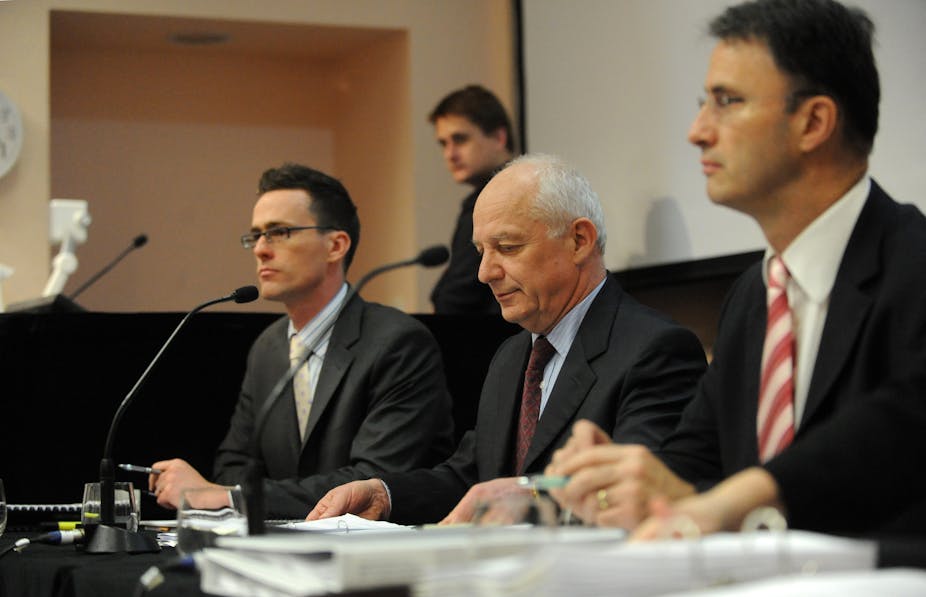An independent inquiry into media regulation has recommended that a statutory watchdog be given the power to set journalistic standards for all news organisations, and to order them to publish apologies, corrections or retractions.
It also says that the grim situation confronting newspapers does not justify the argument for government funding, but recommends that another review be conducted into the health of the industry over the next two years.
The report, written by former Federal Court judge Ray Finkelstein, describes current regulatory processes as insufficient “to achieve the degree of accountability desirable in a democracy” and notes that they do not apply to online news media.
It says that the Australian Press Council suffers from structural constraints, limited funding and voluntary membership, and the Australian Media and Communications Authority (ACMA) is “cumbersome and slow”.
The report recommends that a statutory body - a News Media Council - be created with secure funding to replace the press council and take on the functions of ACMA.
Mr Finkelstein also noted that it was too early to conclude that newspapers were in terminal decline in Australia. Consequently, “at this stage there is not a case for government support”, he wrote.
“I recommend that one function of a News Media Council should be to chart trends in the industry, and particularly to see whether there will be a serious decline in the production and delivery of quality journalism.
"In addition, I recommend that within the next two years or so the Productivity Commission be issued with a reference to conduct an inquiry into the health of the news industry and make recommendations on whether there is a need for government support to sustain that role.”
The report’s key recommendations are as follows:
Like the Australian Press Council, the News Media Council’s members should be comprised of community, industry and professional representatives. It should adopt complaint-handling procedures which are timely, efficient and inexpensive. In the first instance it should seek to resolve a complaint by conciliation and do so within two or three days. If a complaint must go to adjudication it should be resolved within weeks, not months.
An important change to the status quo is that, in appropriate cases, the News Media Council should have power to require a news media outlet to publish an apology, correction or retraction, or afford a person a right to reply. This is in line with the ideals contained in existing ethical codes but in practice often difficult to obtain.

